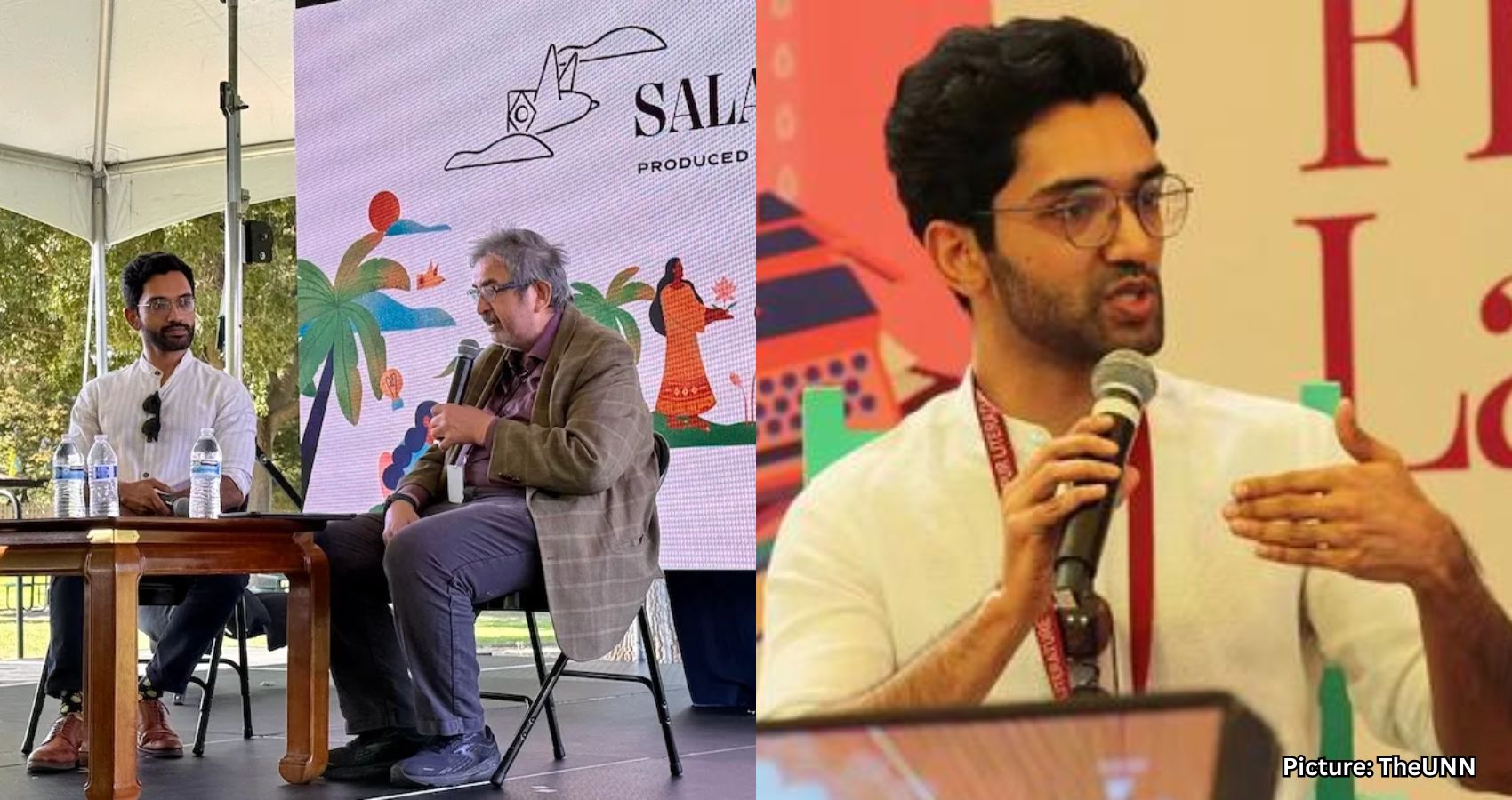Young historian Manu S. Pillai shared insights on the complexities of Indian history and the role of contemporary perspectives during a panel discussion at SALA 2025.
Manu S. Pillai, a prominent historian and author, has garnered attention for his ability to reimagine Indian history through engaging storytelling and modern interpretations of power and empire. At the South Asian Literature and Art Festival (SALA) 2025, Pillai participated in a panel discussion with author and journalist Salil Tripathi, where they explored the intricacies of history and the challenges faced by historians today.
The session began with a light-hearted exchange, as Tripathi suggested that Pillai was mischaracterized as “one of India’s best young historians,” arguing instead that he should be recognized simply as “one of India’s best historians.” Pillai, in his mid-30s, found the label somewhat irritating, reflecting on how he would likely view this moment of youthful frustration in the years to come.
The humor that characterized the opening of the discussion continued throughout the session, which was filled with valuable insights and advice for younger generations interested in history.
During the conversation, Tripathi raised the question of whether rational discussions about history are even possible in today’s context. Pillai recounted his experience following the publication of his first book, The Ivory Throne (HarperCollins, 2016), which led to a defamation lawsuit from the royal family of Travancore. They objected to his portrayal of the Maharaja, who was revered as “Pratyaksha Padmanabhan,” an embodiment of the deity Vishnu. Despite the legal pushback, the family’s lawyers humorously noted their enjoyment of the book.
Pillai noted that such hypersensitivity is not uncommon in contemporary India, where he has faced backlash for referring to historical figures like Shivaji without the customary honorifics. He emphasized the importance of understanding people rather than judging them, while also advocating for historians to engage with younger audiences through social media, given its growing influence over traditional reading habits.
As the discussion progressed, Pillai highlighted how different generations interpret history through their unique lenses. He argued that the disdain some hold for historians can be countered by avoiding the temptation to “whitewash” the past. He acknowledged the historical presence of violence and strife, but also pointed out that places of worship often served as centers of commerce and peace. For example, while Tipu Sultan may have been known for his military actions, he also made offerings to temples, illustrating the complexity of historical narratives.
Tripathi noted that attacks on historical narratives are not limited to India, citing examples from the United States, where critical race theory and exhibits at institutions like the Smithsonian have faced scrutiny. Pillai agreed, expressing relief that this struggle between memory and history is a global issue, and he remarked on the inevitability of human folly in the repetition of history.
Pillai expressed a fascination with the “mixed-up element of history,” sharing anecdotes from Maharashtra, where he grew up. He mentioned historical figures like Malik Ambar, a black military slave who married local women, and the presence of black queens in the region during the 16th and 17th centuries. He also touched on the influence of Chinese culture in India, noting how common items bear Chinese names, and shared a personal revelation from a DNA test that traced his ancestry back to a Malayali Christian.
His latest book, Gods, Guns and Missionaries (Penguin Random House / Allen Lane, 2025), distinguishes between Hindu thought, Hinduism, and Hindutva. Pillai explained how religious practices evolve under various influences, highlighting the ongoing changes in Islam and Hinduism in contemporary India.
When an audience member questioned the assertion that “there was no India before 1947,” Pillai referenced William Dalrymple’s recent work, The Golden Road: How Ancient India Transformed the World. He clarified that while the term “India” may not have existed, there was a shared cultural zone that connected various regions.
Pillai offered sage advice on the importance of speaking truth to power and cultivating diverse reading habits. He urged young readers to avoid relying solely on social media for information, encouraging them to read widely and critically. “Never swallow or believe everything you’re told,” he advised, emphasizing the importance of questioning and critical thinking.
He also discussed the fear that those in power often have of comedians, noting that when people cannot take a joke, they resort to controlling narratives. Pillai shared examples of resistance through parody, including a Telugu play that humorously critiqued societal norms. He praised regional films, such as The Great Indian Kitchen, for their ability to confront cultural taboos.
In response to concerns about the erosion of rights, Pillai encouraged the audience to “fight small battles every day.” He likened this approach to lighting many small lamps in a dark room, suggesting that while each effort may seem insignificant, together they can create a powerful illumination of change.
Pillai’s insights at SALA 2025 underscored the complexities of history and the importance of engaging with it critically and thoughtfully, particularly in an era where narratives are often contested.
Source: Original article

